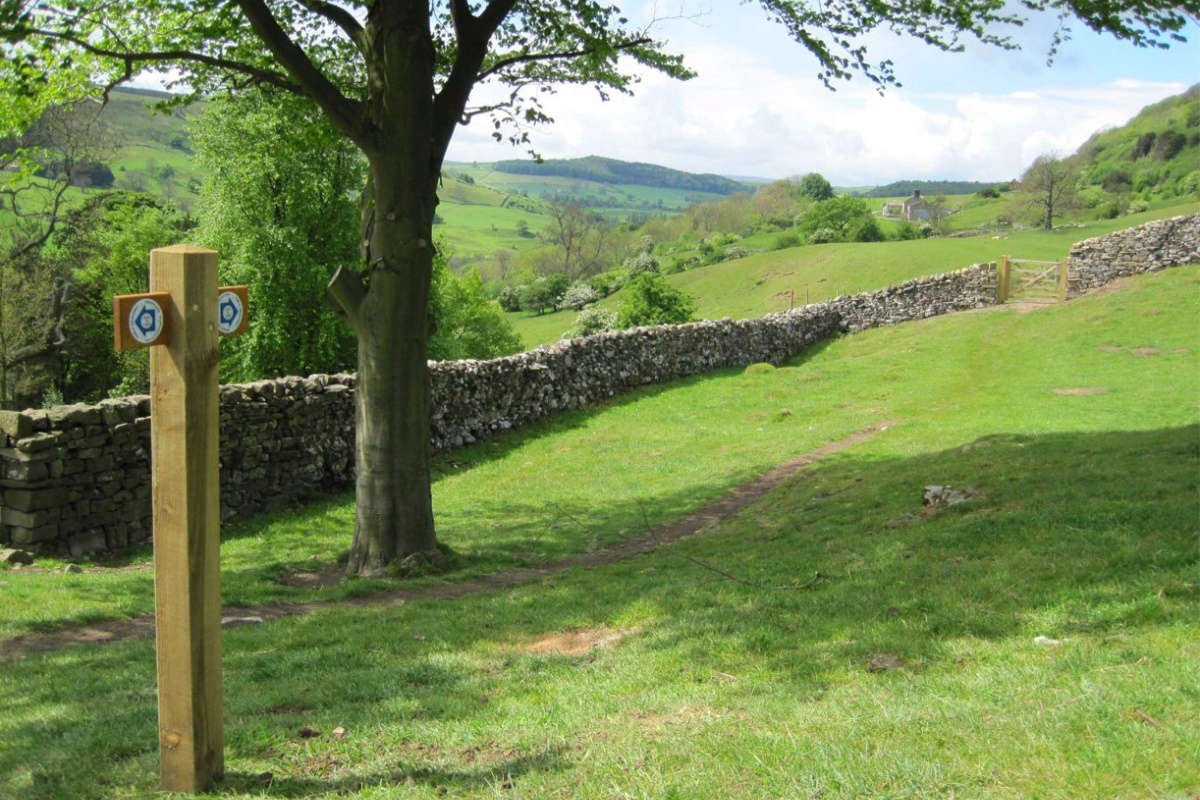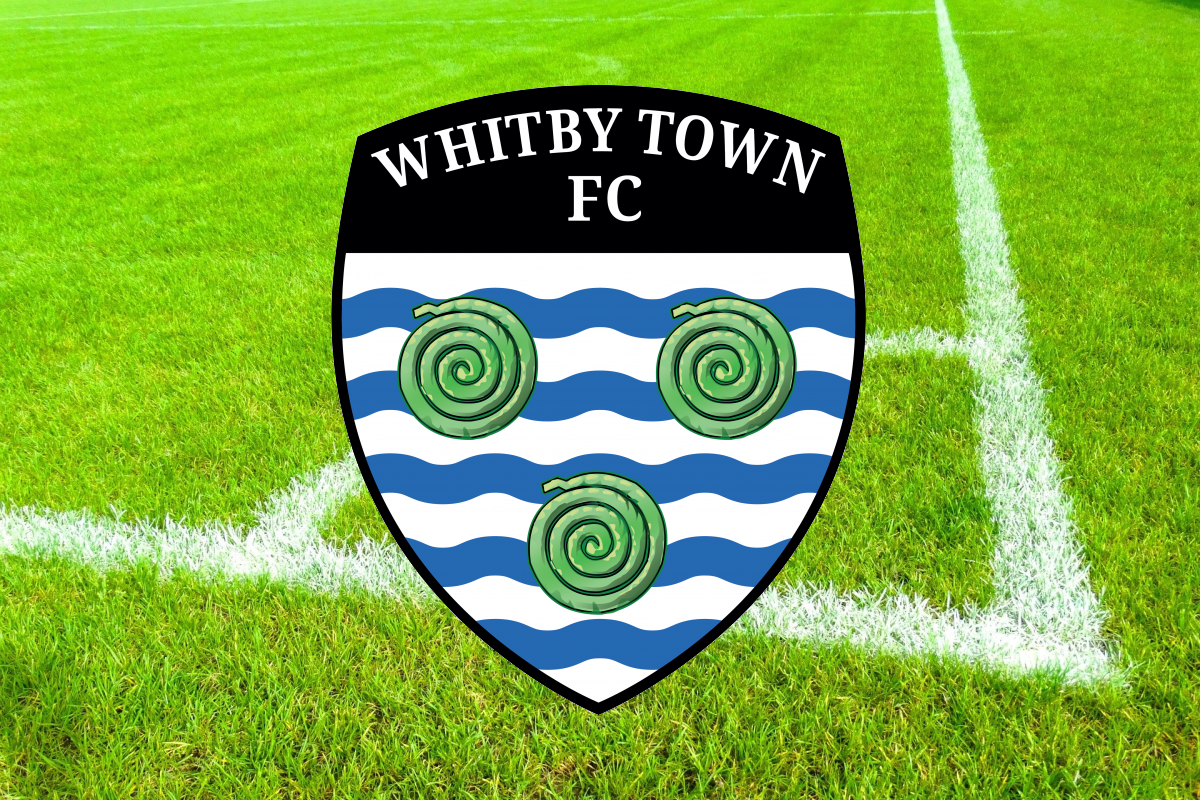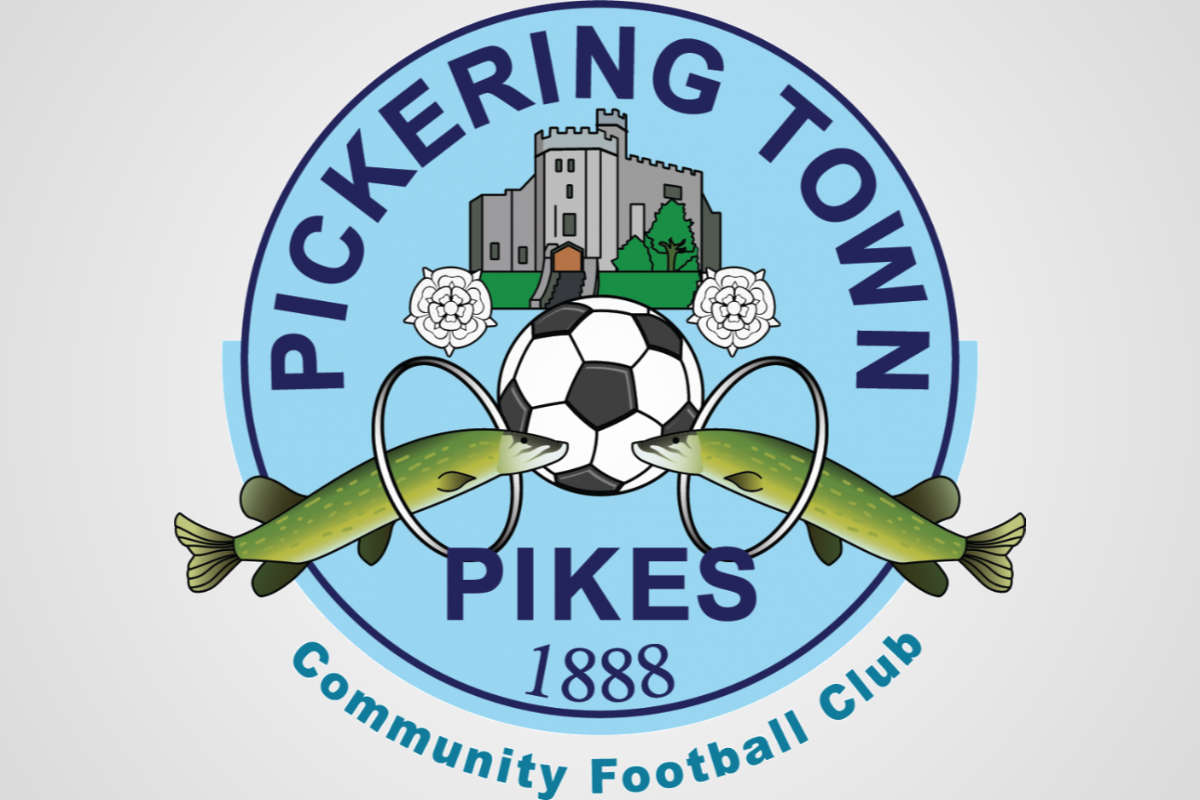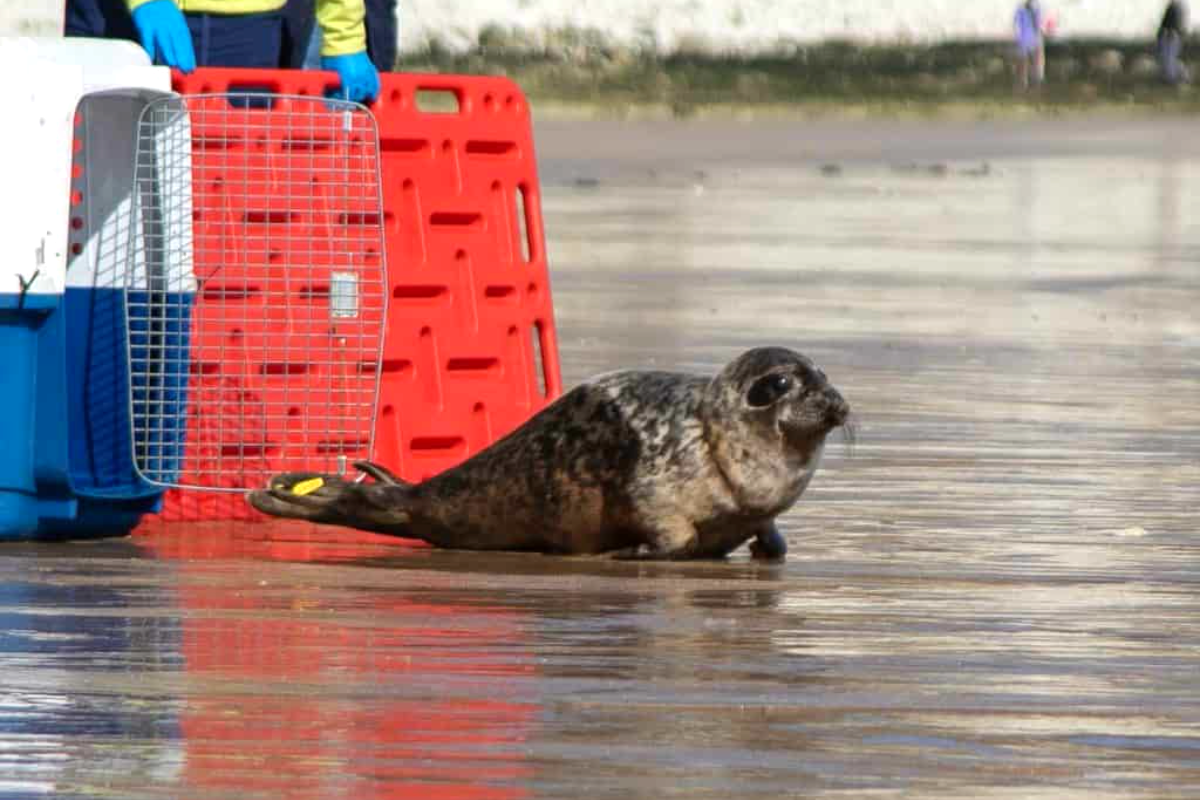
A blueprint which could see Alfred Wainwright’s 190-mile Coast to Coast route join the country’s top long distance routes as a National Trail looks set to be submitted to the government within weeks.
Natural England, the government’s adviser for the natural environment, will ask Secretary of State for the Environment, Food and Rural Affairs George Eustice to consider a proposed route it has developed over the last year while working with the Lake District, Yorkshire Dales and North York Moors national parks and North Yorkshire and Cumbria county councils.
The move follows campaigners, including Richmond MP Rishi Sunak, insisting the 190-mile St Bees Head to Robin Hood’s Bay route should join the 15 designated official National Trails in England and Wales, such as the Pennine Way and the Cleveland Way, which receive public money for maintenance and promotion.
A meeting of the Yorkshire Dales National Park Authority on Tuesday will hear while the return of its army of volunteers following the pandemic had bolstered rights of way in the park, the potential adoption of Coast to Coast trail as a national route would see spin-off benefits for the park’s footpaths and bridleways.
An officer’s report to the meeting states:
“The proposal for the Coast to Coast route to join the family of National Trails, is welcomed. If the proposal is confirmed by the Secretary of State then this will have an impact on the authority’s future works on rights of way, but should also come with financial resources for implementation and future maintenance as well as potentially for ‘wider benefit’ opportunities.”
The report states with a total of 1,186 days of practical work, and 713 days of surveying, undertaken by volunteers on rights of way last year equated to about nine full-time staff, which helped the authority achieve its maintenance target for paths, including ones on the Coast to Coast route.
In addition to the work looking at Coast to Coast route alignment, Natural England has asked the park and local authorities to consider the wider benefits, which would need to be separately funded, National Trail designation could bring.
The officer’s report states:
“The Coast to Coast route has existed for many years, but has not benefited from the promotion and status of a member of the National Trial family. As the announcement about National Trail status was tied to the National Disability Strategy, an expectation has been raised that it would be suitable for people with limited mobility.”
The proposed route, which will follow Wainwright’s route as closely as possible, and potentially a report highlighting the social and economic benefits of designating the trail are due to submitted before the parliamentary summer recess on July 21.
A North Yorkshire local access forum meeting earlier this month heard a Natural England officer leading the proposal explain how national trails were about linking communities and boosting business and tourism opportunities rather than just being “a line on a map” for long distance walkers.
She said while there would be limitations on how accessible parts of the route would be due to the mountainous terrain, officers developing the plan were focussing on how the trail could be used by the maximum number of people, looking at opportunities for alternative or circular routes.
The meeting heard should the route be approved, Natural England would then work with landowners on creating or diverting rights of way as well as applying for numerous consents relating to the route’s habitats, such as designated Sites of Special Scientific Interest.
Councillors were told Natural England had alerted Highways England that finding a suitable crossing at the A19 would be “a massive sticking point” due to safety concerns.
Natural England’s preferred option is to create a footbridge where a bridleway currently crosses the A19, but the meeting heard Highways England was looking at a range of options including diverting the trail to a bridge to the north.





 Feens Farewell Gig in Scarborough Tonight
Feens Farewell Gig in Scarborough Tonight
 Health Chief Reports Teen Bullying Worries in North Yorkshire
Health Chief Reports Teen Bullying Worries in North Yorkshire
 Scarborough Athletic Play First of Home Double
Scarborough Athletic Play First of Home Double
 Whitby Town Face Yet Another Six-Pointer To Kick Off Final Five
Whitby Town Face Yet Another Six-Pointer To Kick Off Final Five
 Final Month Relegation Shoot-Out For Bridlington Town
Final Month Relegation Shoot-Out For Bridlington Town
 Yorkshire Coast Rugby Union Season Concludes
Yorkshire Coast Rugby Union Season Concludes
 Pickering Town Bring Curtain Down With Home Clash
Pickering Town Bring Curtain Down With Home Clash
 Injured Yorkshire Coast Seal Back in the Water
Injured Yorkshire Coast Seal Back in the Water
 Flamingo Land Welcomes Baby Giraffe
Flamingo Land Welcomes Baby Giraffe
 Scarborough and Whitby MP to Launch Petition for Return of Stroke Services
Scarborough and Whitby MP to Launch Petition for Return of Stroke Services
 UK Mayors Being Urged to Buy Scarborough Buses
UK Mayors Being Urged to Buy Scarborough Buses
 Free Music Events in Scarborough to Raise Funds for Andy's Man Club
Free Music Events in Scarborough to Raise Funds for Andy's Man Club










Comments
Add a comment